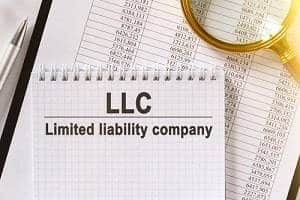If you have an entrepreneurial spirit, you may have dreamt of being your own boss someday or building a company from the ground up. Starting your own company or going into business with a partner is a major endeavor, not to be taken lightly. In a business partnership, you and your partner can split the profits any way you want, as long as you both agree to the terms of the arrangement. When business partners start a new company, they typically bring different skills and assets to the table. It is not uncommon for one partner or partners to bring in cash and the others to bring managerial experience or industry knowledge. The key issue here is then how to appropriately compensate each partner and where to allocate the liability. The legal aspects of running a business can be intimidating, so that is why you should consult with an experienced business law attorney before embarking on this type of endeavor. In order to avoid any disputes when a company becomes successful, fails, or if there is a third party lawsuit, it is imperative to consult an attorney to properly allocate profits—and liability—to minimize harm later on.
Limited Liability Companies and Profit Sharing
Limited liability companies (LLCs) are an ideal way to share profits and distribute liability between partners (or as known in LLCs: “members”). LLCs are incredibly flexible and can be custom designed for your business’ specific needs. LLCs can be designed in the following ways:
-
Allow for “silent partners” where members can invest but not be involved in decision-making and can avoid most liability
-
Customize profit-sharing and voting rights so that voting rights do not have to correlate with profit-allocation (in other words, voting rights are not tied with ownership amount of the LLC)
-
Customize ownership and profit-sharing so that profit allocation can be more or less than ownership percentage
-
Customize profit loss and gain so that they are not equal to one another
-
Have all members be silent investors and hire an external non-owning manager to run the business
The above is only made possible with a carefully crafted operating agreement. Without an operating agreement, the LLC is subject to the rules of the state statute, which is very limiting.
Sharing the Proceeds
Other elements of the operating agreement should include:
-
Division of profits: Both the division of profits and losses and how and when each partner will get paid should be clearly explained.
-
Contributions: If either partner contributes any assets to the business, whether it is cash, property, or equipment. It should also be clear whether these contributions are part of an investment or whether they are considered loans.
-
Decision-making: Who has the authority to make decisions as well as how disputes are handled must be addressed.
-
Defined roles: Outline each of your management duties and document them in the agreement or whether those roles are outsourced. For instance, who handles employee communications, payroll, and healthcare benefits.
A business attorney can help you understand the different ways that a limited liability company may work so you can determine how active you and your partner want to be within the company. This information is essential for creating a successful and profitable business.
Contact a Cook County Business Lawyer
Depending on your company’s structure, part of being a business partner may involve profit sharing. At Motiva Business Law, our skilled Cook County business law attorneys will help you build a successful business model so you can achieve your business goals. Attorney Danya Shakfeh is well-versed in Illinois business law, and she understands the importance of creating a trustworthy relationship with your business partner. To schedule your private consultation, call our office today at 630-517-5529 or use our contact form.


